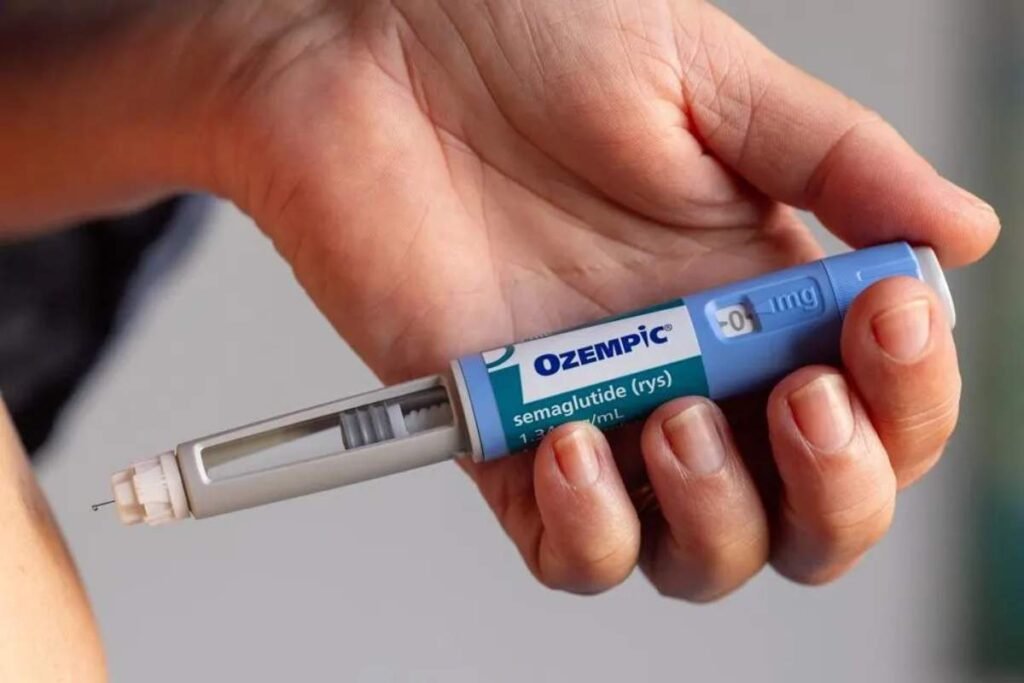A new study published in JAMA Psychiatry suggests that drugs commonly used to treat diabetes, like Ozempic, may also be effective in treating alcohol use disorder (AUD). The findings indicate that GLP-1 drugs not only help manage blood sugar and support weight loss but may also reduce alcohol-related hospitalizations, performing even better than the current leading medications for alcoholism.
GLP-1 Drugs Show Strong Results in Alcohol-Related Hospitalization
The study tracked patients diagnosed with AUD who were treated with GLP-1 receptor agonists, drugs originally developed for diabetes management. Researchers found that these patients experienced fewer hospitalizations for alcohol-related issues. Specifically, the drugs semaglutide (sold under brand names like Ozempic and Wegovy) and liraglutide (sold under the brand name Victoza) reduced the risk of hospitalization due to alcohol use by 22% and 21%, respectively. This reduction surpassed the effectiveness of medications currently used to treat alcoholism, according to the study’s authors.
The National Institute on Alcohol Abuse and Alcoholism reports that over 28 million adults in the United States suffer from AUD. However, only three medications are currently approved for AUD treatment, and they are often not suitable for all patients, with high rates of relapse frequently reported.
Study leader Dr. Markku Lähteenvuo highlighted the need for new treatments, pointing out that many patients don’t respond well to available medications and are in dire need of effective solutions to help manage their addiction.
How GLP-1 Drugs May Affect Alcohol Consumption?
GLP-1 drugs, typically used to treat Type 2 diabetes and obesity, work by mimicking a naturally occurring hormone called GLP-1, which signals the body that it is full. This signaling mechanism not only helps control appetite but also seems to reduce cravings for substances like alcohol, drugs, and even nicotine.
The study analyzed medical records from 228,000 people diagnosed with AUD between 2006 and 2023, all of whom also had either obesity or Type 2 diabetes. Approximately 60% of participants were hospitalized for alcohol-related issues over the study period. However, the analysis found that alcohol-related hospitalizations were significantly lower in those treated with GLP-1 drugs. Among the subset of around 75,000 people who were prescribed medications to treat AUD, the team documented 30,000 hospitalizations, with only 220 instances of hospitalization among the 4,300 patients who had been prescribed semaglutide. Those taking older GLP-1 drugs, such as liraglutide and dulaglutide, also reported fewer hospitalizations.
Dr. Lähteenvuo suggested that GLP-1 drugs may influence alcohol consumption through their effects on sugar cravings, as these drugs are known to make sugary foods and drinks less appealing. Alongside decreased interest in food, users of Ozempic have reported reduced cravings for alcohol, drugs, and nicotine.
GLP-1 Drugs and Their Expanding Role in Treating Addictions
The U.S. Food and Drug Administration approved Ozempic in 2017 for treating Type 2 diabetes and Wegovy in 2021 for weight loss. Since then, researchers have been exploring the potential of GLP-1 drugs in treating various chronic conditions, including colorectal cancer, osteoarthritis, and brain disorders. Earlier research this year highlighted the potential of GLP-1 drugs to treat both alcohol and opioid addictions by influencing dopamine levels in the brain. These drugs interact with the mesolimbic system, a brain pathway associated with reward processing that also plays a role in addictive behaviors.
The World Health Organization has identified alcohol abuse as a major global health issue, attributing 5.1% of the worldwide disease burden to alcohol consumption. Additionally, the Cancer Progress Report 2024 from the American Association for Cancer Research indicates that over 5% of all cancer cases are caused by alcohol.
Hope for Future Addiction Treatments
Dr. Lähteenvuo emphasized that while these findings are promising, more research is needed to validate them. He notes that while GLP-1 drugs appear to hold potential in treating alcohol and substance use disorders, further randomized controlled trials will be essential to confirm these benefits.
For the millions struggling with addiction, these initial findings offer hope that GLP-1 drugs like Ozempic could become a valuable addition to treatment options, potentially transforming the way addiction is managed in the future.









